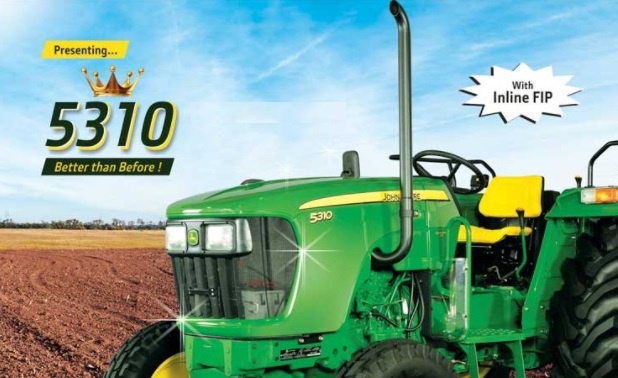Smallholder Farming in India With Complete Guide
Smallholder farming plays a vital role in India's agriculture sector. It supports the livelihoods of millions of farmers and their families. However, small-scale farmers in India often face a number of challenges that can limit their productivity and profitability. These challenges include limited access to credit, markets, modern technology, unpredictable weather conditions, and pests and diseases.
At the same time, there are also significant opportunities for smallholder farmers in India to improve their livelihoods. This can be done through initiatives such as sustainable agriculture practices, cooperatives, and partnerships with the private sector. This blog post will delve into the challenges and opportunities facing smallholder farmers in India. We shall also discuss how these farmers can overcome obstacles and take advantage of opportunities to thrive in agriculture.
Challenges for Smallholding Farmers
Limited Access to Credit
Smallholder farmers in India often face difficulty obtaining loans or other financings to invest in their farms. This can be due to a lack of collateral or access to financial institutions.
As a result, small-scale farmers may be unable to afford inputs such as seeds, fertilizers, or irrigation equipment. And this ends up limiting their ability to expand or improve their operations. In addition, smallholder farmers may not have the resources to invest in modern technologies or sustainable agriculture practices. Investing in these could increase their productivity and profitability.
Several initiatives and programs are in place to address this challenge, such as government-led credit programs and microfinance institutions. The government also enables farmers to buy tractors, such as the Eicher 380, to support their farming operations.
Limited Access to Markets
One of the major challenges smallholder farmers face in India is the lack of market access. Many small-scale farmers struggle to find buyers for their crops, which can lead to low prices and reduced profitability. This can be due to several factors. Lack of storage and transportation infrastructure, information about market prices and demand, and a lack of bargaining power with buyers can be some of these factors.
In addition, smallholder farmers may face competition from larger, more established farmers. These large farmers have better access to markets. This can further disadvantage small-scale farmers and make it difficult for them to earn a sustainable income.
Various initiatives and programs are in place to improve smallholder farmers' access to markets, such as government-supported marketplaces and cooperatives. However, these efforts may not always effectively reach smallholder farmers or address the underlying challenges they face in accessing markets. As a result, improving access to markets remains a significant challenge for small-scale farmers in India.
Difficulties in the Adoption of Modern Tech
Smallholder farmers in India may face difficulty adopting modern technologies and innovations that could improve their productivity and profitability. This can have several factors, such as a lack of knowledge about the technologies, a lack of resources to invest in them, or a lack of infrastructure to support their use. They may need the training to use simple tractors even, such as the John Deere 5310.
For example, small-scale farmers may not have the financial resources to invest in precision farming technologies. Such technologies can increase efficiency and reduce the use of inputs. They may also lack the infrastructure to use these technologies, such as electricity or internet connectivity. In addition, smallholder farmers may not have the knowledge or training to effectively use modern technologies, which can further limit their adoption.
There are various initiatives and programs to improve smallholder farmers' access to modern technologies, such as government-supported training programs and partnerships with the private sector. However, these efforts may not always effectively reach smallholder farmers or address the underlying challenges they face in accessing technology. As a result, improving access to modern technology remains a significant challenge for small-scale farmers in India.
Unpredictable Weather
Smallholder farmers in India are often vulnerable to the adverse impacts of natural disasters, such as droughts, floods, and extreme weather events. These events can impact smallholder farms, leading to crop losses and reduced income. In addition, smallholder farmers may lack the resources or insurance to protect themselves against these risks, which can further compound the financial impact of these events.
Various initiatives and programs are in place to reduce the risks faced by smallholder farmers due to climate change and natural disasters, such as insurance schemes and climate-resilient agriculture practices. However, these efforts may not always effectively reach smallholder farmers or address their underlying challenges. As a result, dealing with unpredictable weather conditions remains a significant challenge for small-scale farmers in India.
Conclusion
To conclude, smallholder farming plays a vital role in India's agriculture sector, supporting the livelihoods of millions of farmers and their families. However, small-scale farmers in India face a number of challenges that can limit their productivity and profitability, including limited access to credit, markets, and modern technology, as well as unpredictable weather conditions and pests and diseases. These challenges can be particularly devastating for smallholder farmers, who may not have the resources to recover from losses or invest in protective measures.
At the same time, there are also significant opportunities for smallholder farmers in India to improve their livelihoods through initiatives such as sustainable agriculture practices, cooperatives, and partnerships with the private sector. Addressing the challenges that smallholder farmers face and taking advantage of these opportunities will be crucial for supporting the long-term viability of small-scale farming in India.


No comments yet